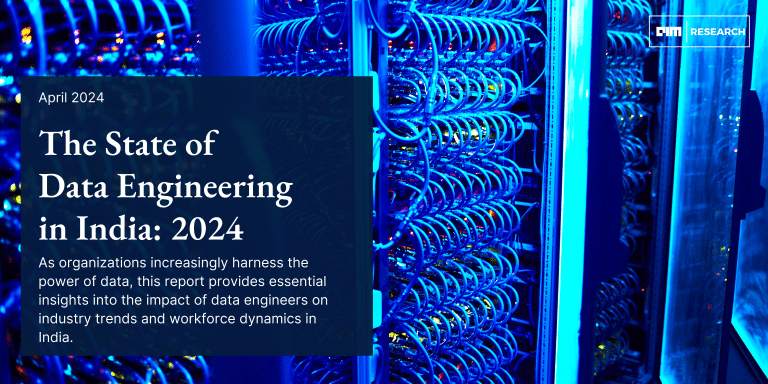When kickstarting one’s journey as a data scientist, one might be overwhelmed by the vastness of the area of study. The resources are immense and massively growing. However, this readily available information comes with the challenge of selecting between one thing and its multiple alternatives. This availability of a large amount of information and alternatives is termed information overload.
Coined by Political Science Professor Bertram Gross in 1964, ‘information overload,’ by definition, occurs when the amount of information input to a system exceeds its processing power or capacity. And when such information overload occurs, the decision quality automatically decreases.
The Cause
Information overload is a usual phenomenon among data scientists, especially among the ones just starting out in the field. The possible causes for information overload among data scientists are:
- The evolving nature of the field: Data science is an extremely dynamic and evolving field. Although it is a relatively new field of study and profession, new research, white papers, and theories related to data science are published every day.
While this might encourage one to learn more about newer topics and concepts, it may overwhelm and discourage some from taking up data science altogether.
- Unrealistic expectation: A quick look at any data science job opening would reveal that hiring managers expect data scientists to know several technical skills. In doing so, they not just overburden aspiring data scientists but also learning several skills at the same time make them masters of none.
- The vastness of scope: Data science is not limited to one thing. Concepts of business intelligence, natural language processing, data engineering, data analysis, coding, building algorithms, statistics– all of these come under the one umbrella of data science. In order to master it all, one ends up being confused and knowing concepts only superficially.
The Solution
Once the challenges and causes of information overload are identified, aspiring or existing data scientists should move to overcome the challenges. The possible solutions to get the better of the information overload challenge, one must comply with the following:
- Choose a mentor: Like every field of study, data science requires mentorship and guidance. Aspiring data scientists or beginners should find for themselves a mentor or guide to help them pave the path. It is therefore important to have someone to guide while navigating the data science landscape.
- Sticking to the plan: After researching, a beginner must select an area of interest and stick to it. If natural language processing interests you, study, research and excel at it. If data analysis and business intelligence is your cup of tea, stay focused and try excelling in it.
To make this easier, take the data science personality test here.
- Selecting the right tools: Data science can be tricky when it comes to selecting a tool. The same tasks can be performed with different tools. Even when just starting out in the field and wanting to learn a programming language, one might get confused between Python, R, C and C++.
The selection of the aptest tool depends on the area of interest and what one wants to gain expertise in. For example, both R and Python come in handy for data analysis. Similarly, there is a plethora of business intelligence tools that one can use. Different people in the data science field will have different opinions on tools and programming languages. The best way to overcome this obstacle is to select the tool that best suits your purpose and is one that you are most comfortable using.
- Identifying the right resources: There is no dearth of resources to master data science. With innumerable courses being available online, the best way to select one is by identifying the key requirements, which is why self-paced learning courses are advised. Similarly, if you wish to take up a course on business intelligence, select a course that teaches using the tool of your choice and helps solve the problem statements that you ultimately want to find solutions to.
To know more about how to select the right data science training programme, click here.
While it is easy to get swamped with the available options and alternatives available to one starting out with data science, keeping in mind the above-mentioned points will allow one to stay focused and excel in the field.
To know how to land the right data science job, click here.



















































































